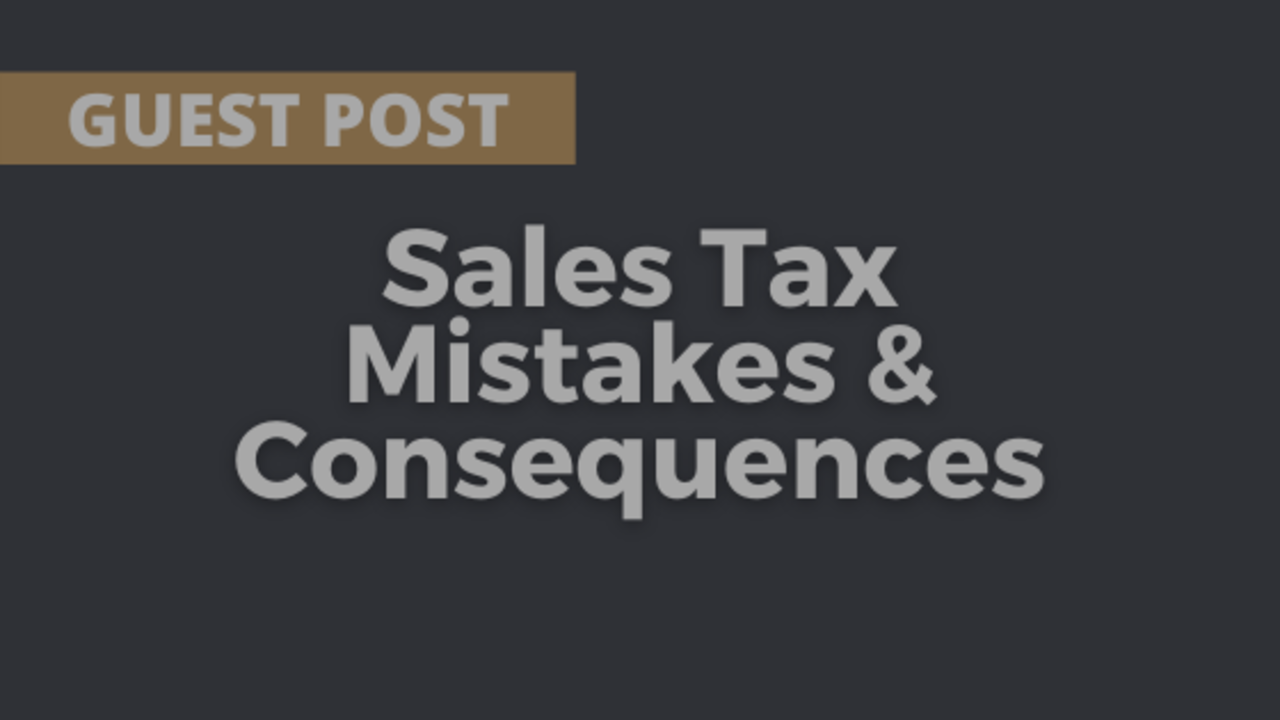7 Consequences of Failing to Pay State Sales Tax


It is not uncommon for restaurants to suffer cashflow problems because of low profit margins. Unfortunately, they may use sales tax money owed to the state to pay other bills. When a business fails to properly track, collect and pay sales tax, the state has various enforcement tools to go after the business, including the following:
- Collection action against income and assets. The tax department can go after bank accounts, real or personal property, wages, cash receipts, inventory, and other assets to collect taxes owed.
- Imposition of penalties and interest. States can have steep penalties for failing to pay or underpaying taxes. Interest also must be paid on the amount owed.
- Closure of the business. The tax department can shut down a business for failure to pay sales tax, sell the property at auction, and revoke the business’s right to collect sales tax, effectively putting it out of business.
- Referral for income tax audits. A sales tax audit that shows underreported income can lead to a state or IRS income tax audit.
- Personal liability. In some states, certain individuals involved in the business can be held personally liable for the business’s outstanding sales tax debts. That means the state can go after the individual’s personal assets and income to collect the taxes owed by the business.
- Criminal conviction. In some instances, the government may pursue a criminal case against a party, which can result in additional fines, penalties, and/or jail time.
- Bad publicity and visibility. Many states have public databases where they list parties that the government is pursing collection action against for back taxes owed. In addition, if a large amount is owed, the government may publicize it in a press release. Local papers also may pick up the story of a business seized due to taxes.
States are increasingly using sophisticated technology and data mining to find businesses that underreport sales tax. They can use data from wholesalers, distributors, credit card vendors, and other restaurants to compare against the taxpayer’s records.
If you are behind on paying your taxes, the best thing to do is act quickly and get help. Some states have a voluntary disclosure program which enables you to avoid penalties if you come forward and pay the outstanding taxes before the state discovers your underpayment. An Installment Payment Agreement may also help if you need extra time to pay. If you cannot afford to pay your tax bill, an Offer in Compromise (OIC) may be an option where available. This allows you to settle for less than the full amount due if you qualify.
Sales tax rules are complicated and carry significant risks when businesses get them wrong. Restaurant owners should contact a qualified tax professional to discuss compliance with sales tax rules and how to resolve a tax dispute.
GUEST ARTICLE
Karen Tenenbaum, Esq., LL.M. (Tax), CPA is Founder and Managing Partner of Tenenbaum Law, P.C., a tax law firm in Melville, N.Y., which focuses its practice on the resolution of IRS and New York State tax controversies. Karen can be reached at [email protected] and at 631-465-5000.




